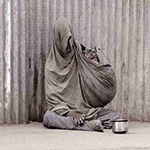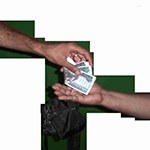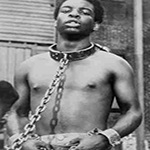Definition: The plural of faqir, a person who does not have anything with which he can fulfil his basic needs and that of his family i.e. food and drink, clothing and shelter.
People to whom Zakat is paid are those that are entitled to it, and these are the eight categories of people that Allah Almighty mentioned exclusively in His statement: “As-Sadaqah (Zakah) are only for the Fuqara’(poor), and Al-Masakeen (the needy), and those employed to collect (the Zakah), and to attract the hearts of those who have been inclined towards Islam, and to free captives, and for those in debt, and for Allah’s cause (i.e. for those fighting in holy battles), and for the wayfarer (a traveller who is cut off from everything); a duty imposed by Allah. Allah is All-Knower, All-Wise.” (At-Taubah: 60)
Definition: The plural of faqir, a person who does not have anything with which he can fulfil his basic needs and that of his family i.e. food and drink, clothing and shelter.
He is given from Zakah that which is enough to sustain him and his family for a complete year.

The plural of miskeen, a person who possesses half or more of his needs e.g. a person with one hundred but needs two hundred. The balance he needs is given to him and his family for a year.

-Those who have been appointed by the authorities to gather Zakat and monitor its distribution to those who need it. -They are given from the Zakat fund an amount equal to the wages they get for their work, even if they are rich, for the collectors have devoted themselves to this work, unless they are paid wages or salaries from the state and then they should not be give from the Zakah. The collectors are those who work in collecting Zakah, recording it, guarding it and giving it out to its beneficiaries.
A Zakah administrator and a debtor-even if they are rich-are paid from the Zakah. This is also the case of a person capable of earning a living, if he is fully engaged in seeking knowledge of the Shari’ah but does not have money - because seeking knowledge is (a form of) striving in the cause of Allah. Also included in these categories is the fighter in the cause of Allah and those whose hearts are inclined towards Islam. However in a case where the one capable of earning is a worshipper that left his work to fully devote himself to optional aspects of worship, he is not paid from Zakah, because the benefit of the worship is restricted to the worshipper, as in contrast to knowledge.
Allah Almighty said: “O you who believe! Spend of the good things which you have (legally) earned, and of that which We have produced from the earth for you, and do not aim at that which is bad to spend from it, (though) you would not accept it save if you close your eyes and tolerate therein. And know that Allah is Rich (Free of all wants), and Worthy of all praise. Shaitan (Satan) threatens you with poverty and orders you to commit Fahsha (evil deeds, illegal sexual intercourse, sins etc.); whereas Allah promises you Forgiveness from Himself and Bounty, and Allah is All-Sufficient for His creatures’ needs, All-Knower.” (Al- Baqarah: 267:268)
Respected leaders, for whom it is hoped, by giving them Zakah, that they will either accept Islam, refrain from evil, have their faith strengthened (if already Muslims), or defend the Muslims against an enemy.
They are given from the Zakah an amount that results in their hearts being inclined towards Islam, God willing.

The slave and the partial slave (who is the slave who is trying to buy himself from his master) are given from the Zakah what is enough for them to free themselves completely.
Zakah can be paid to them so that each one of them is able to become a completely free man and a useful member of the society, and be able to worship Allah, the Most High, in the best manner. Paying the ransom for Muslim prisoners of war is also included in this category.

The plural of gharim: The one in debt.
Debtors are of two types:
1- A person who incurs a debt to fulfil his personal needs; he is given from Zakah an amount to pay the debt, if he is poor.
2- A person who incurs a debt as a result of reconciling two groups of Muslims; he is given from Zakah an amount to pay his debt, even if he is rich.

Those who are fighting in the cause of Allah.
They are given an amount that will suffice them in fighting in the cause of Allah. Also included in this category are numerous da’wah activities that are counted as striving in the cause of Allah, if such could not be sponsored or sustained through non-obligatory alms (Sadaqah).
A traveller who is stranded and has no money with him.
He is given from Zakah an amount that ensures his safe delivery to his country of residence, even if he is rich in his own country.
1- Zakah can never be given to any other than the eight categories of people mentioned, even if it is for a good and philanthropic cause e.g. the building of Mosques, schools, hospitals, and other charitable causes which are eligible for alms.
2- It is not a condition to cover all of the eight categories mentioned; rather, it suffices if any of them is given the Zakah.
Due to the Prophet’s statement ﷺ: “There is no share of it (Zakah) for the rich and those who are strong and able to earn a living.” [ Source:Abu Dawud]
It is not permissible to give Zakat to those whom a Muslim is obliged to cater for e.g. the father, mother, grandfather, grandmother, children, and grandchildren; this is because giving Zakat to them will make them needless of his mandatory spending, thereby freeing him of their burden and as a result the benefits of Zakat goes to him, just as if he had paid it to himself.
It is not permissible to give Zakat to disbelievers, as long as the intention is not to incline their hearts to Islam etc. This is due to the Prophet’s statement ﷺ: “It (Zakah) is collected from their rich and given to their poor,” [ Source:Al-Bukhari]
i.e. the rich among the Muslims and their poor, but none other than them. Also because one of the aims of Zakat is to enrich the poor Muslims and consolidate the pillars of love and brotherhood among individuals of the Islamic society, but this is not permissible with regards to the disbelievers.
Zakah is not permissible for the household of the Prophet ﷺ as a mark of honour and respect to them. The Prophet ﷺ said: “Indeed these alms are only people’s impurities and indeed they are not permissible for Muhammad and his household.” [ Source: Muslim]
They are the slaves freed by the household of the Prophet ﷺ, due to this hadith: “Indeed, alms are not permissible for us and verily, the freed slaves of a people are part of them.” [ Source: At-Tirmidhi] “Part of them” i.e. the ruling concerning the former also applies to the latter. As such, Zakah is forbidden for the freed slaves of the household of Banu Hashim.
Zakah is not paid to a slave, because the property of a slave belongs to his master. When Zakat is paid to him, it is transferred to the ownership of his master. Furthermore, it is the responsibility of his master to cater for him. Excluded from this is the one working to free himself from slavery (mukatib); he is given from Zakat what is sufficient to settle what is left of the stipulated amount. Also the slave who administers Zakah can be given Zakah; when a slave is an administrator of Zakah, he is given from it, because he is like a labourer and a slave can be hired on the permission of his master.
The prompt payment of Zakat is compulsory when the means are available, and it is not permissible to postpone its payment except in cases of necessity e.g.
if the money is in a country that is far away, or the person is serving a jail term etc.
Evidence for the prompt payment of Zakah is in Allah’s statement “…but pay the due thereof on the day of its harvest” (Al-An’am: 141), “…and give Zakah” (An-Nur: 56); (a Qur’anic order), as an order necessitates prompt compliance.
It is permissible to pay Zakah up to two years in advance if the Nisab is complete at the time of advancing the payment.
Although it is preferred to pay Zakah to the people of the country wherein the property lies, it is also permissible to transfer Zakah from its country of origin to another country, which is either near or far from the country where the property is located, for any specific reason, for example if the other country is experiencing extreme poverty, or if the payer of Zakah has relatives there who are poor (to the same extent as those in his own country). Indeed, paying Zakah to ones relations who are in need is beneficial, i.e. it is charity (sadaqah) and also it strengthens the bond of kinship.
The opinion of the permissibility of transferring Zakah is correct, due to the statement of Allah Almighty: “As-Sadaqat (Zakah) are only for the Fuqara’(poor), and Al-Masakeen (the needy)” (At-Taubah: 60), i.e. the poor and the needy everywhere.
Zakah is taken from the average of the wealth, not from its best nor from its worst. It is therefore, not obligatory for one paying his Zakah to give the healthiest of his cattle, the pregnant one or the billy goat. Nor does he have to give the finest of his fruits; unless it so pleases him and he is satisfied with that.
But he may not give the bad instead of the good, unless all his wealth is bad or all his cattle were sick, in that case he may pay his Zakah from that.
Allah Almighty says: “...and do not aim at that which is bad to spend from it, (though) you would not accept it save if you close your eyes and tolerate therein.” (Al- Baqarah: 267).
Furthermore, in the hadeeth: “Al-Harema[ Al-harema: Very old] (an old goat), one with a defect in the eye[ Dhat ‘ewar: It has a defect with which it can’t be bought] or a Tays[ Tays: A billy goat that is not fertile, so it is useless] (infertile male goat) is not to be accepted as sadaqah (Zakah) unless the collector wishes,” [ Narrated by Bukhari]
and he also said (to Mu’ath): “Refrain from picking (as a share of Zakah) from the best of their wealth.” [ Narrated by Bukhari]
1- The Zakah payer must investigate to see who are eligible to receive Zakah. It should not be only an annual habit, just giving it to anyone even if the people do not deserve it. The Prophet ﷺ said: “But no rich man or one who is strong and able to earn has a share of it.” [ Source:Abu Dawud]
2- The Zakah payer must strive to find those who rightfully deserve the Zakah and are most in need of it. The more a person shows the characteristics of rightfully deserving Zakah, the more he should receive it; such as a poor relative or a poor seeker of knowledge, and so on.
The basic way to pay Zakah is to pay it from what it is mandated on; but it is permissible to monetize it when a compelling need for this arises.
The norm is that Zakah on properties is to be monitored by the authorities and not left to the payers’ discretion. If the authorities however neglect this duty, the responsibility would then lie on every Muslim.
It is permissible to invest Zakah money in beneficial projects whose benefits go to the people entitled to it when an immediate need requiring its prompt distribution is not found.
- Zakah is a calculated periodic right payable from a property and it is an individual obligation upon everybody that has the csapacity to pay it.
- On one’s property there are other rights apart from Zakah, which are characterised by being contingent and are not calculated according to any known formula as Zakah is. They are also not as constant as Zakah and do not become obligatory due to the presence of money; rather, they become obligatory due to some contingent reasons, and the ownership of money is a condition for it being obligatory. Examples include spending on ones parents, relatives, wife, and in the prevention of any harm in times of disaster when the public treasury cannot take care of it.
- Levies/taxes do not spare one from Zakah, even if they are equitable. Zakah is a form of worship, while tax is a civic duty and one does not replace the other.